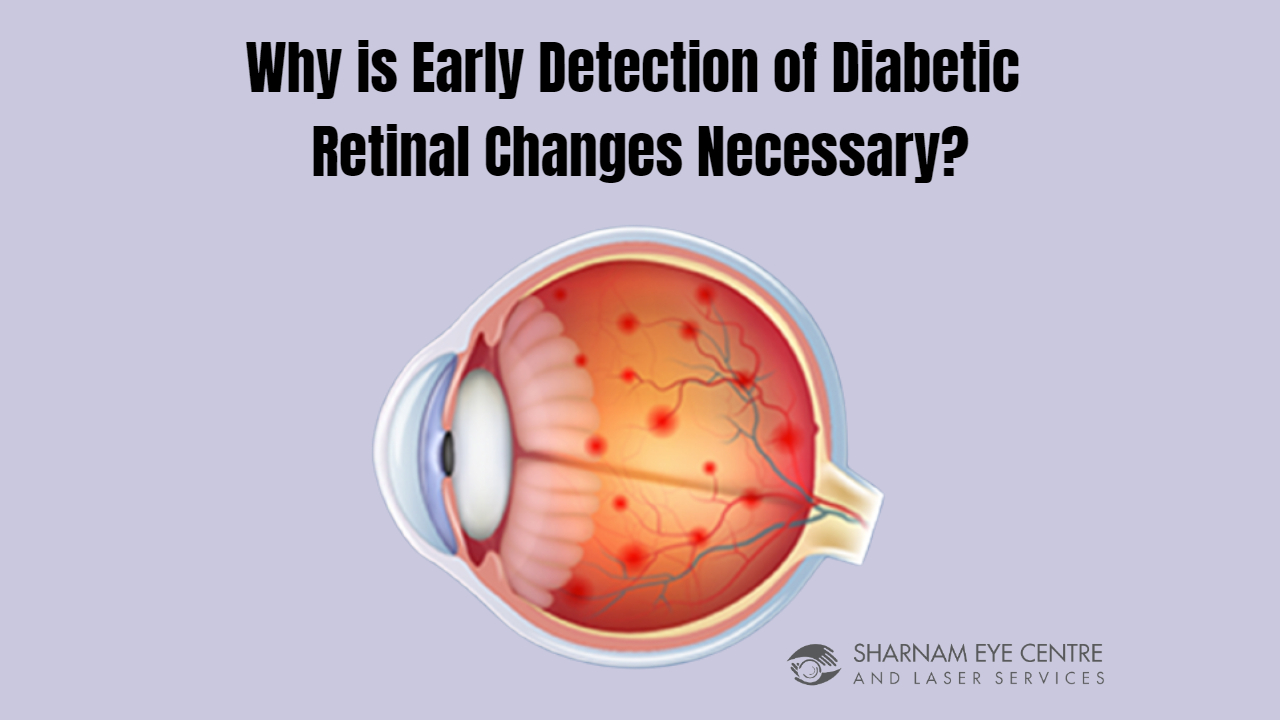Diabetics have an amplified risk of developing eye problems which, if left untreated, can result in deprived vision and sightlessness. However, 98% of serious vision damage from diabetes can be halted with regular eye examinations and timely treatment.
How Does Diabetes Affect Your Eyes?
High blood glucose levels can cause variations in the contour of the lens which can distort your vision. This can occur before diabetes is detected or isn’t being treated. The distortion generally vanishes when blood glucose levels are reduced via suitable treatment. Therefore, getting new spectacles should be postponed until blood glucose levels are back within the suggested range. High blood glucose levels for lengthy periods of time can increase the risk of more serious eye difficulties in individuals with diabetes, including:
✔ Diabetic Retinopathy
✔ Macular edema
✔ Glaucoma
✔ Cataracts
Most diabetics undervalue the fact that diabetes can influence eyesight because they do not observe changes in their vision until the situation is very dire. Few diabetic patients get the luxury of initial cautionary signs. Often, the damage to the eye is done before the presentation of any symptoms. Hence, it is necessary to have regular eye check-ups so that complications can be detected early and treated quickly.
Why is early detection of diabetic retinal changes necessary?
Diabetic retinopathy is one of the leading reasons of avoidable blindness in working-aged adults. Risk elements for visually substantial diabetic retinopathy consist of duration of disease, poor glycemic control, and hypertension.
The American Diabetes Association suggests preliminary eye examinations for patients with diabetes as follows:
● For Type 1 Diabetes- first dilated exam within 5 years of beginning of diabetes;
● For Type 2 Diabetes- first dilated exam at time of analysis; and
● For pregnant people with diabetes- a screening checkup before or during the first trimester.
Regrettably, studies show that the rate of diabetic eye exams continues to be low. Timely detection of diabetic retinopathy is imperative for quick treatment and optimum visual outcomes. In the case of subclinical diabetic retinopathy, neural retinal damage and microvascular changes might occur but be asymptomatic to patients. At the point of noticeable funduscopic diabetic variations, microvascular changes might have already resulted in irreparable structural impairment.
Improvements in imaging technology have provided ophthalmologists with adjunctive analytical tools to better assess for the manifestation and degree of diabetic retinopathy. Simple color fundus photography is important in emphasizing discoveries that might have been overlooked on slit lamp or incidental ophthalmoscopy examination. Non-invasive optical coherence tomography (OCT) is a very useful diagnostic tool to know what is happening in the layers of the retina of diabetic patients.
Diabetic retinopathy is a very serious impediment resulting from diabetes. Virtually all diabetic patients will show some retinal vicissitudes at some point in their lives. It is presently suggested that type 1 diabetics begin yearly eye exams 3-5 years post diagnosis. Patients with type 2 diabetes should have annual eye exams beginning the same year as their analysis. Well-timed diagnosis of diabetic retinopathy is necessary as the significance of early treatment has become progressively obvious. Remember, your sight is very valuable. Take the time out for a comprehensive annual eye exam to make sure that you preserve this valuable resource for many years to come.
Disclaimer: This content is for informational purposes only and should not replace professional medical advice, diagnosis, or treatment.



